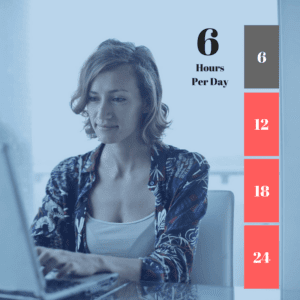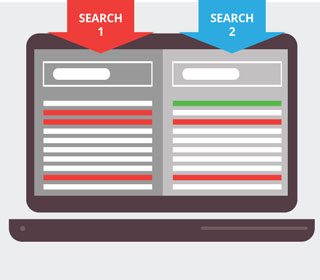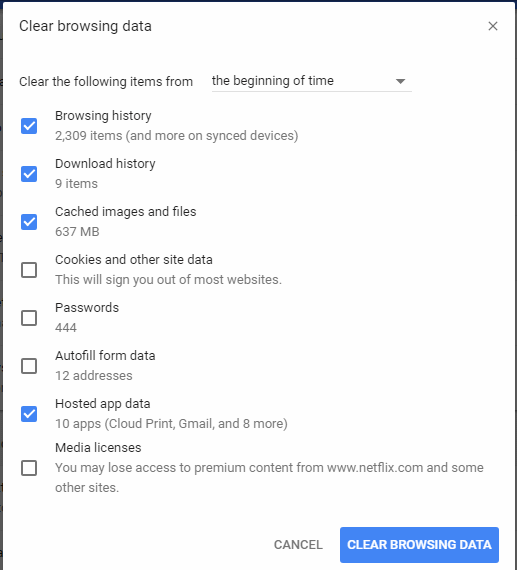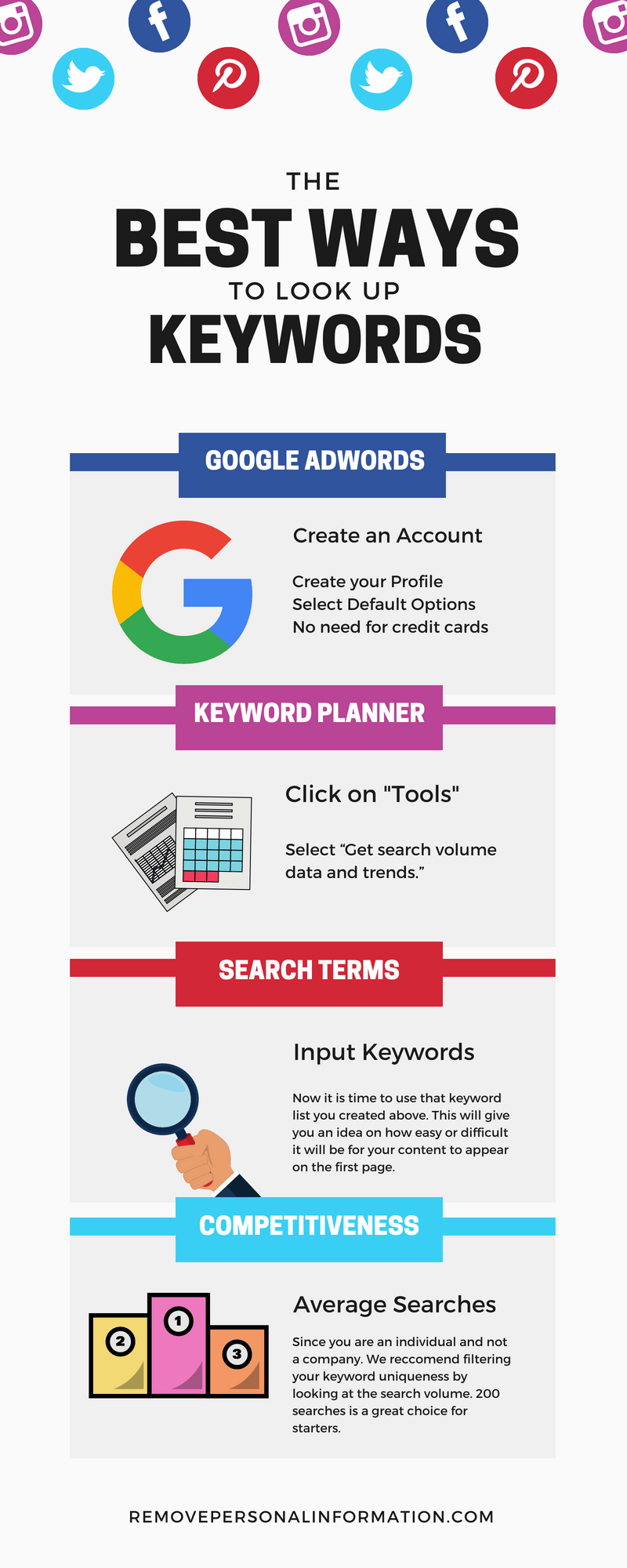Guide To Online Reputation Management
Why Does Online Reputation Matter?
How you appear online is crucial to your success in life. Online reputation is the overall image you portray to others on the internet.
Nowadays, everyone turns to the internet as a know-all source. Whether you are applying for a new job, moving, or going on your first date, how you are perceived online is how the world sees you.
There are over 13.5 Billion searches on Google daily. How many are about you?
People, on average, spend 6 hours of their day online. 25% of your entire day is spent online, sharing ideas or products with your friends, or simply browsing with no end goal. What are people seeing about you?


Online Presence Has a Tremendous Impact On Your Life.
Take control of your web presence. Whether it is about a personal or business matter, your online reputation dictates your success and failure.
Some issues you can deal with yourself. However, many times you would require a team depending on the severity of your situation. Make sure you are taking the proper steps to improve your online reputation today.
Have any questions? Speak to a knowledgeable team member today.
A Guide On How Online Reputation Management Works
Control is essential when managing your online reputation. Creation of content and promotion is what we do best.
Here is a quick summary before we get into the specifics.
Creating Your Online Reputation Management Plan The Right Way
As a guide, know that everything in your search results is factored into your overall online reputation. This is in addition to your social media presence. Depending on how active you are, you may have the deal with third-party sites as well.
So, generally speaking, keep your information on websites that you have control over. Make sure you are representing yourself as you want people to see you. Here are some great examples for you to start with:
- Designing custom websites
- Social media platforms – Facebook, Instagram, Twitter, Pinterest, and many more
- Blogs and forum sites – Reddit
- Press releases – if applicable


Being Found Is Key To Improving And Building Your Online Reputation
To put this in perspective, 90% of all Google visitors do not venture past the first page. On top of that, most users select only from the first 4 options (paid ads or organic).
So you need to encourage search engines to boost important content to the top of the results, where most people will find it. Use creative and professional images and, most importantly, keep the content original!
What factors influence the ranking of search results? Honestly, more than you can quantify. There are endless ways that an individual can improve their overall presence online.
More factors to take into consideration:
- Relevance – stay focused and on topic
- The overall power of the website
- Backlinks!
- The volume of visitors who have looked at your page
- How frequently you update and manage your information
- Users’ behaviors after visiting your site. Where do they go, how long are they there?
Evaluate Your Online Reputation
Before you can create a strategy for improving your online reputation management, you need to get the lay of the land. Follow this guide’s steps below to discover how other people see you online and how competitive your search results are.
Conduct Nameless Searches
Start by searching your name on Google.
Keep in mind your computer will search for related content you have previously looked at — that may skew your results. What you see may be different than what everybody else is seeing. An easy way to rectify this would be to clear your cache data or memory stored on your device.
Open up the settings within your browser and clear the specified boxes as shown below:
Need Advice or Help with this Issue?
Check Out Other Sites To See What They Are Doing
Just because you search one way does not mean everyone else uses your exact words when surfing the web.
Try this out with a few variations to ensure you are covering everything.
- Utilize multiple search engines – Google, Bing, Yahoo, etc.
- Type your name under different variations – John Smith or John Smith Florida or even John D. Smith
- Figure out the most popular keywords or search queries related to you
- Browse the web to see what others are doing.
Determine The Search Volume
At this point, you have worked through the first two steps on how you can better your online reputation.
- How people search for you
- What they find
The next step is to determine HOW MANY users are researching you. Search volume determines the level of difficulty on how you will appear and on what page.
There are many tools online that you can utilize while looking for keywords with the highest search volume. Google offers a free feature that anybody can use.
Do not worry about using lower search volume keywords. As an individual, you will have a harder time ranking on Google for popular words. Try to be creative and very specific. That works in your favor when it comes to influencing online reputation.
Get Free Advice Now
Understanding What You Have Done
Now that you can track the keywords and the overall status of your website, it is time to address bigger concerns.
- Do I control any of the top sites?
- What sites do I appear on?
- Who is looking for me and where?
- How do people find me?
- How is my overall reputation
- What are my strong suits? What is hurting me online?
There are some general categories of online reputation that most fall into. How confident would you feel, knowing people can look you up in the light you deserve.

Minimal Online Presence. Be aware that your site will index on its own for certain pages like InstantCheckMate or BeenVerified.
By having little to no online presence, you are in complete control of what is posted online. But, once you get your online plan going, remember to be professional and respectful always to ensure no negative third-party content such as blogs, comments, and reviews is posted about you. This could be detrimental to your public image and overall online reputation.

Under attack. Once you start to rank, others will notice and take action.
When working online, everyone wants their information to appear at the top — obviously. Once they see you are working on your search engine optimization tactics, they may redo some things. That is why you should constantly check and monitor your search visibility.
Time To Launch Your Plan
Have you followed our ORM guide so far? Now that you have a sense of the state of your online reputation management, you need to develop a plan to improve what’s out there. While planning, it’s essential to balance several factors:
- What you want to achieve
- What will have the greatest impact
- What comes easiest to you
- How much you can realistically do
To build an efficient and effective plan, try some of the tips below:
Who Are You Targeting? Guide The Online Search Engines
After looking into it yourself, you may have noticed that the results vary if a search query is slightly altered, John Smith vs. John D. Smith. These two factors are perfect to determine your first reputation management keyword target. For example, let’s say you’re a doctor named John Doe, with the following results:
| Search term | Search volume | Search results characterization |
|---|---|---|
| John Smith | 75 | Misleading |
| John D. Smith | 2 | Positive |
| John Doe Smith | 235 | Mostly positive, one negative |
As you can see above, the slightest alteration will render different results and guide the search engines in a different direction.
Personal Advice?
Set a Goal
Building your online reputation management strategy can take time. If you have read our guide so far, you are able to see what your competition is ranking for and how you can optimize your site to outrank them.
Now it is time to find where you are ranking and what you can do to push your competitors off Google’s first page.
You must optimize your keywords per page and post. Use categories and tags to further establish yourself within a specific search.
For example, if you want to show up when people type in John Smith Florida, you would need to look up the keywords for your name — as well as Florida. Do not rely on the same keywords for everything! You need to switch these up to avoid cannibalizing your own site.
The key is to build enough successful ranking pages so you do not have to worry about all of your pages being found. If you can land a position at the top, users will navigate within your site.

Concerned with something online? Get free advice from a reputation management expert.
Content Creation
Okay, so after finding your target market, developing keywords, and ensuring you will obtain a high volume of search traffic. It is time to produce content for your readers. Be original, post often, and cater to what your visitors are interested in.
Do not post photos just because you like them. Vivid colors and bold text will look more enticing to your readers.
Keyword Placement
Go back to the list of keywords you previously built. Start to include these within all of your blogs or pages you create on your website. Do not stack your keywords or, in other words, do keyword stuffing.
Keyword stuffing refers to the practice of loading a webpage with keywords in an attempt to manipulate a site’s ranking in Google search results. Check out these best practices for using these:
- Place your top keywords towards the beginning of the article
- Randomize the placement afterward (use the same word about once every 100/200 words)
- Keywords placed in titles and headings are very beneficial.
For images and videos:
- Include the keyword within your username and profile
- Use the keywords as appropriate, again DO NOT KEYWORD STUFF
- Mark your alt tags with the focus keyword
Content Length
When determining how long your articles should be, make sure to include at least 300 words. The longer, the better! Feel free to use up to 1500-3000 words if you need to.
Make sure the content is well collected, displayed, and easy to read. Users do not want to scroll for days until they find what they are looking for.
Include Metadata
SEO is one of the most important characteristics of a website nowadays and a fundamental pillar on this online reputation management guide. Make sure you fulfill all requirements for the SEO Title, Slug, Meta-description, and your focus keyword to maximize the efficiency of each post.
Avoid Duplicate Content
When the same content is posted over and over or categorized as the same, it will severely hinder your visibility online. In this case, try testing variations. For example, if you have 2 blogs about the same topic, find synonyms for what you have already used. This way, you can expand your visibility without competing against yourself.
Link Building
The use of internal and external links is also extremely important. Links help readers venture to other blog articles on your site — usually for clarification on a specific topic.
You can also implement external links to reputable sources if you wish to complement your content by sending your readers to another source touching on topics you do not cover — i.e., Wikipedia. Link building is one of THE most important aspects to consider in this guide to online reputation management.
90% of users do not venture past the first page
—Google—
—Google—
Monitoring And Tracking
Time To Put What You Have Learned To Work!
By now, you have learned the basics about what you need to further improve your reputation score online. You have all the ammunition you need to create a successful game plan on how you will go about building your site.
If you have any questions about using online reputation management to guide your efforts or would like to speak with a knowledgeable expert today, contact us through our website, or call 844-824-6487.



